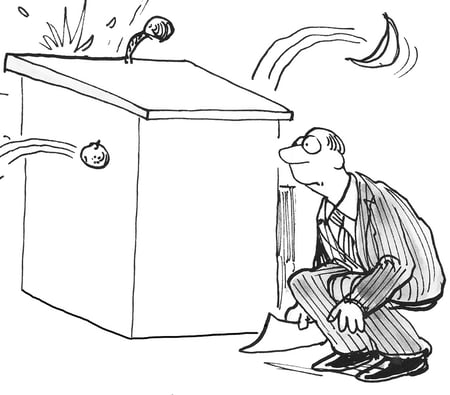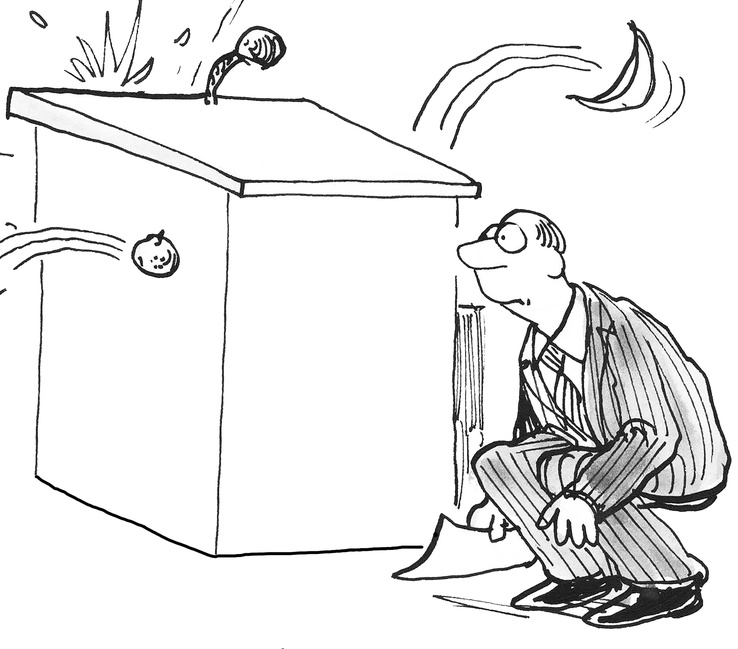 by Tony Klapper
by Tony Klapper
Managing Director, Litigation Consulting
A2L Consulting
We have always emphasized how important it is for a trial lawyer to organize his or her case so as to tell a consistent and convincing story to the jury or judge. In making that recommendation, we draw on experience and common sense, as well as on science that indicates that human beings are wired to follow intriguing stories and to look forward to their ultimate resolution.
“Storytelling is essential to winning trials – and that goes for mediations, arbitrations, and hearings, literally anywhere you must connect with an audience,” we have written. “Whether it’s your story or not, a story will inevitably emerge during a trial. Mock trials and focus groups have repeatedly shown that when a jury has two camps representing the two sides of the case, each camp will have a fairly consistent story that it endorses and clings to. Consistently, we find that those stories are short, that they fit with common sense, that they borrow some of the salient facts from the trial, and that they are complete tales, with a beginning, a middle and an end – including what happened and what should have happened.”
A story removes a case from the realm of the strictly legal and makes it personal. It humanizes one’s client and helps a jury identify with the client. But can storytelling go too far as a technique of persuasion?
Not long ago, I had the opportunity to meet with several lawyers at an outstanding law firm that is known for its trial expertise. One of the partners raised an interesting issue with me: Can the process of storytelling at trial cross the line into pandering, a contrived appeal to a jury’s emotions that ultimately causes the lawyer to lose credibility? In discussing ways that a story can be told effectively, I had given the example of a case on which we had worked with a client with a remarkable personal story; the client, who was Jewish, had barely escaped Nazi Germany and had built a successful business. This bit of history was not directly relevant to the claims in the case. Did we go too far in focusing on it?
That’s a very valuable question, and there’s no clear answer. It’s a matter of human emotion, so the answer is that it depends. I recommend that when there’s any question of perceived pandering or manipulation, you should “pressure test” the story in advance with some thoughtful people. They could be members of a mock jury, or simply one’s spouse, friend or co-worker. How does the story sound? Does it make the complex legal dispute come to life, or does it talk down to the jury in a way that will turn the jury off or even cause them to resent the client or even me the lawyer?
You as a trial lawyer may fall in love with a story, but that’s not the last word. A jury may see it as manipulative even if that’s the furthest thing from your mind. So test your stories in advance. Your credibility may depend on it.
Other A2L Consulting articles and resources related to storytelling in the courtroom, what makes a great story, and persuading a judge or jury include:
- Free 144 page A2L E-book download: Storytelling for Litigators
- Free watch - A2L webinar - Storytelling as a Persuasion tool
- Dan Pink, Pixar, and Storytelling for the Courtroom
- $300 Million of Litigation Consulting and Storytelling Validation
- 20 Great Courtroom Storytelling Articles from Trial Experts
- Storytelling Proven to be Scientifically More Persuasive
- 5 Essential Elements of Storytelling and Persuasion
- 10 Videos to Help Litigators Become Better at Storytelling
- The Best Litigators Love Sales, Love Storytelling and Persuasion
- 21 Reasons a Litigator Is Your Best Litigation Graphics Consultant
- Podcast: Storytelling in Litigation
- The 5 Very Best Reasons to Conduct a Mock Trial
- 14 Differences Between a Theme and a Story in Litigation
- Your Trial Presentation Must Answer: Why Are You Telling Me That?
- Are You Smarter Than a Soap Opera Writer?
- Conflict check: Be the first to retain A2L
- 11 Things Your Colleagues Pay Litigation Consultants to Do






Leave a Comment